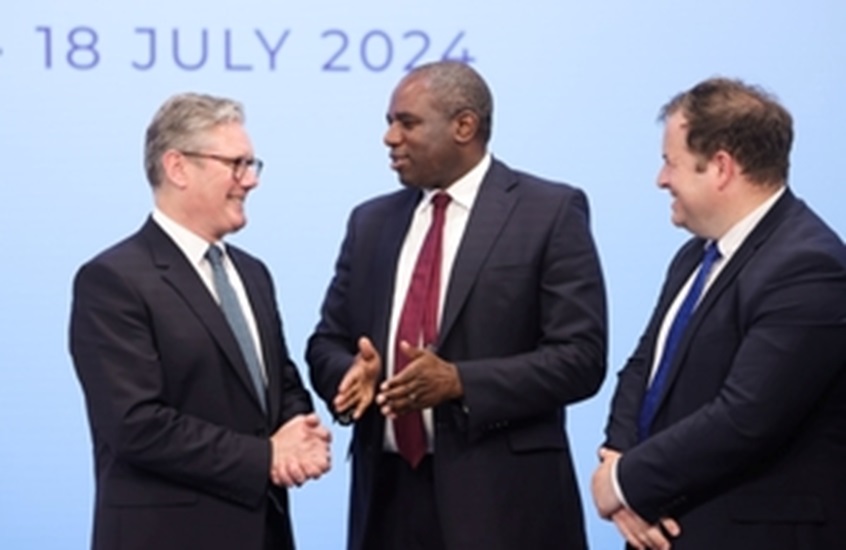The Foreign, Commonwealth & Development Office will roll out up to £84 million funding over the next 3 years to address the reasons for illegal migration.
The Prime Minister has today announced new plans to build on the government’s manifesto commitments to smash criminal gangs, secure UK borders and protect the vulnerable.
Speaking from the European Political Community summit – the biggest meeting of European leaders hosted in the UK for decades – the Prime Minister called on leaders to take an international approach to the growing irregular migration crisis as he announced plans to work with the Global South and European partners to tackle drivers of small boat arrivals.
A funding package of up to £84 million will be rolled out by the Foreign, Commonwealth and Development Office over the next 3 years to address the factors that drive people into small boats.
Millions migrate every year due to conflict, climate change, and humanitarian crises, putting a strain on host communities and leaving vulnerable individuals open to exploitation.
The funding will support projects across Africa and the Middle East to improve education and employment opportunities as well as initiatives that will help to build resilience to global shocks like conflict and climate change, which are 2 of the leading causes of irregular migration.
Around 45 European leaders attended the summit to discuss some of the most pressing generational issues facing Europe – from the war in Ukraine to illegal migration and security cooperation – as part of a government reset with European relations. It was also the first time that migration was discussed at an EPC working group, reflecting the need for further collaboration to tackle this shared challenge.
The Prime Minister also announced new initiatives with Slovenia and Slovakia to tackle serious organised crime and stop the gangs that are profiteering from global instability. The deals with Slovenia and Slovakia will enable greater cooperation between law enforcement and help to strengthen security in the UK against cross-border terrorism, serious and organised crime, and people smuggling.
A key focus of the UK’s work upstream will be to improve the long-term prospects for people in their home region by supporting them to access education and employment opportunities.
New programmes to help Syrian refugees in Jordan and Lebanon to access education, improve skills, and find employment opportunities will be introduced to deter migrants from travelling onwards.
These initiatives will help to build on the commitments made by the UK at the United Nation’s High Commissioner for Refugees’ (UNHCR) Global Refugee Forum in December last year to ensure refugee children can access education, which improves livelihoods, reduces marginalisation and risk of abuse.
Meanwhile funding in North and East Africa, including for the Better Regional Migration Management (BRMM) programme, will help migrants to fill local skills gaps whilst ensuring their rights are protected. Opportunities for individuals to positively contribute to their local economy can help them to better integrate into society and deter them from dangerous onward travel in search of opportunities elsewhere.
Humanitarian aid for communities impacted by conflict will also be provided as part of today’s package. This includes funding to provide food, water, shelter, and health interventions to over 210,000 individuals in Sudan, where over 8.7 million people have been displaced due to the conflict. Sudanese refugees in Eastern Chad, which is currently host to more Sudanese refugees than any other country, will also be supported. Not only is this aid vitally needed, but it will also help people to stay within their home region so they can return to their homes when conditions allow.
The UK will also increase its funding to a number of multilateral organisations to support governments that host high volumes of refugees and to improve the resilience of nations that are vulnerable to the impacts of climate change and natural disasters.
The UK will also contribute up to £2 million to support the IOM’s work in Libya, including for voluntary humanitarian returns. The initiative helps vulnerable migrants in Libya return to their home country and reintegrate into their community in a safe and dignified manner. The project has also been supported by the EU and has been promoted by Italy through the Rome Process.





